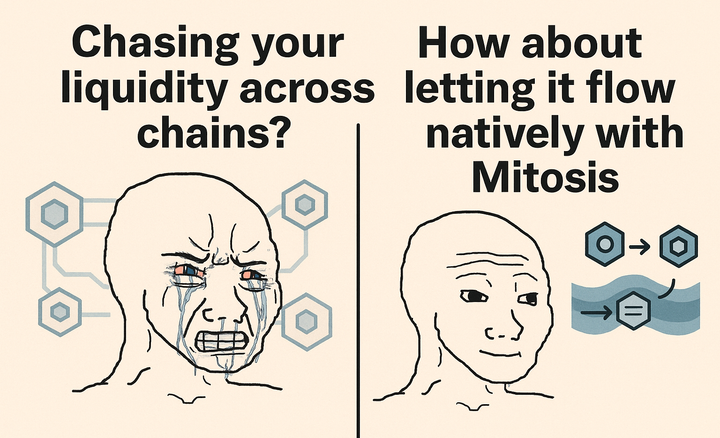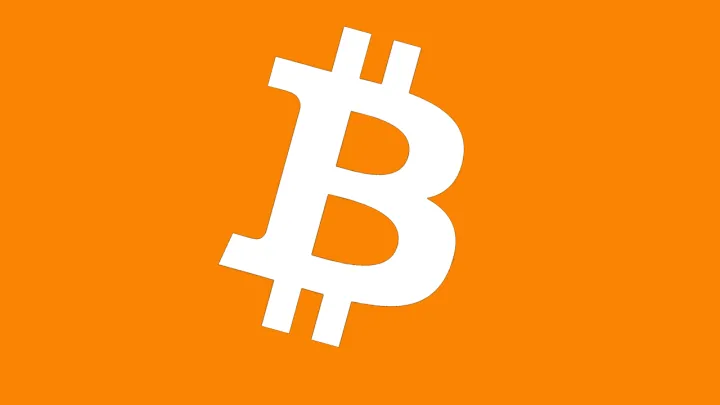Stuttgart Partners with DekaBank for Institutional Crypto Trading

Summary
In February 2025, Germany’s second-largest stock exchange, Boerse Stuttgart, announced a strategic alliance with major savings-bank–focused investment bank DekaBank to roll out fully regulated cryptocurrency trading services for institutional clients across Europe CoinDesk. Leveraging Boerse Stuttgart Digital’s turnkey brokerage, trading, and custody infrastructure—now licensed under the EU’s Markets in Crypto-Assets (MiCA) framework—DekaBank can integrate digital assets into its product suite, offering a secure, compliant on-ramp to crypto markets Cointelegraph. This partnership promises to accelerate institutional adoption of crypto trading, lower barriers via a Centralized Exchange (CEX) model, and set a template for other banks eyeing digital-asset integration. Below, we unpack the partnership’s background, regulatory context, technical architecture, and wider market implications.
Introduction: Why This Partnership Matters
Institutional adoption remains the missing link for global crypto market maturity. While retail platforms have proliferated, assets under custody on fully regulated venues still lag behind demand Crypto Briefing. By coupling Boerse Stuttgart Digital’s established, MiCA-compliant infrastructure with DekaBank’s €411 billion client base, Europe’s savings-bank network gains a trusted gateway into digital assets. This move:
- Bridges legacy finance and DeFi: offering institutional clients the ease of a CEX with robust regulatory oversight.
- Expands custody options: DekaBank can leverage Boerse Stuttgart’s regulated custodial wallet services to meet internal and external risk mandates group.boerse-stuttgart.com.
- Signals momentum: as more European banks pursue crypto services under MiCA’s clarity, the partnership charts a replicable blueprint for wide-scale institutional onboarding.
1. Partnership Details
1.1 Scope of Collaboration
- Product Offering: DekaBank institutional clients will access spot trading of major crypto-assets (e.g., Bitcoin, Ether) via Boerse Stuttgart Digital’s front-end and API CoinDesk.
- Regulated Infrastructure: Boerse Stuttgart Digital provides its fully licensed brokerage and custody backend, ensuring KYC/AML compliance and institutional-grade security Cointelegraph.
- Onboarding Timeline: Following Boerse Stuttgart Digital Custody’s MiCA license in January 2025, integration kicked off immediately—trading went live in Q1 2025 bsdigital.com.
1.2 Leadership Perspectives
Andreas Sack, DekaBank digital-assets executive:
“This collaboration leverages our deep relationships with German savings banks and Boerse Stuttgart’s expertise to deliver a seamless digital-asset experience under full regulatory oversight.” Ledger Insights
Matthias Voelkel, CEO of Boerse Stuttgart Group:
“Partnering with DekaBank to offer crypto trading to its institutional clients underscores our commitment to providing financial institutions across Europe with secure and fully regulated infrastructure solutions.” CoinDesk
2. Regulatory & Market Context
2.1 MiCA: Europe’s Crypto Framework
The EU’s Markets in Crypto-Assets (MiCA) regulation, finalized in late 2024, establishes a harmonized rulebook for crypto service providers Cointelegraph. Boerse Stuttgart Digital was among the first to secure its MiCA license in January 2025—validating its custody and brokerage protocols under pan-EU standards bsdigital.com. DekaBank’s entry leverages this approval, allowing institutional trading without additional national licenses.
2.2 Institutional Demand Trends
- Rising AUM in Digital Assets: Institutional crypto AUM is projected to surpass $3 trillion by 2027, driven by macro hedge funds, pensions, and asset managers seeking yield diversification Crypto Briefing.
- Fragmented Liquidity: Despite growing demand, liquidity remains split across unregulated venues. Integrations like this help consolidate order flow onto compliant platforms, enhancing price stability CoinDesk.
Glossary: Learn more about centralized platforms in our Centralized Exchange (CEX) entry.
3. Infrastructure & Technical Architecture
3.1 Turnkey Brokerage & Trading
Boerse Stuttgart Digital offers a modular trading engine that handles order matching, risk checks, and settlement. Key components include:
- Smart Order Routing: Ensures best execution across internal and external liquidity pools.
- API Connectivity: Institutional clients can integrate trading workflows via FIX and REST APIs.
- Market Surveillance: Real-time monitoring for market abuse and compliance violations.
3.2 Custody & Wallet Management
- Multi-Signature Cold Storage: Private keys are held in geographically distributed, air-gapped vaults.
- Hot Wallet for Settlement: A limited-access hot wallet supports real-time trade settlement while minimizing exposure.
- Self-Custody Options: Institutions requiring bespoke custody can deploy white-label instances under Boerse Stuttgart’s regulatory umbrella group.boerse-stuttgart.com.
Glossary: See our Custodial Wallet definition for how third-party safekeeping works.
4. Strategic Implications for Mitosis Ecosystem Connections
4.1 Competitive Landscape
- Banks & Fintechs: DekaBank joins peers like DZ Bank (via previous Boerse Stuttgart tie-up) in institutional crypto offerings .
- Mitosis Relevance: As Layer 1s and DeFi protocols seek regulated liquidity on-ramps, Mitosis could partner with licensed CEXs to onboard institutional capital into its cross-chain liquidity pools CryptoRank.
4.2 Potential Integrations
- Prime Brokerage Services: Mitosis might integrate DekaBank’s trading rails to offer institutions synthetic exposure on multi-chain strategies.
- Layer 1 Partnerships: By leveraging DekaBank’s custody, Mitosis could attract insurance providers and asset managers to supply collateral on its Ecosystem-Owned Liquidity (EOL) pools .
Glossary: Dive into Ecosystem-Owned Liquidity (EOL) in our glossary for details on collective capital models.
5. Market Insights & Future Outlook
5.1 Driving Institutional Adoption
This partnership addresses three core barriers for institutions:
- Regulatory Clarity: MiCA compliance removes legal uncertainty.
- Operational Ease: Turnkey plug-and-play infrastructure accelerates go-to-market.
- Counterparty Trust: A recognized stock-exchange brand boosts confidence.
5.2 Broader European Expansion
Boerse Stuttgart aims to replicate this model with other European banks and brokers, contributing to a network effect that could standardize institutional crypto services across the EU CoinDesk.
5.3 Implications for Crypto Markets
- Reduced Fragmentation: Consolidated order books on regulated venues can tighten spreads and deepen liquidity.
- Price Discovery: Improved surveillance and reporting foster more reliable benchmarks, benefiting DeFi protocols that rely on oracle feeds.
- Institutional DeFi: Access to regulated CEX liquidity may encourage institutions to explore DeFi strategies—bridging on-chain and off-chain finance.
Conclusion
The Boerse Stuttgart–DekaBank partnership marks a significant milestone in Europe’s march toward institutional crypto adoption. By combining Boerse Stuttgart Digital’s MiCA-licensed infrastructure with DekaBank’s vast savings-bank network, institutional clients gain secure, compliant, and scalable access to digital-asset markets. This collaboration not only strengthens the bridge between legacy finance and Decentralized Finance (DeFi) but also sets a replicable blueprint for banks across the continent.
Key Takeaways:
- Regulation first: MiCA compliance is the linchpin for institutional trust.
- Turnkey infrastructure: Ready-to-use brokerage and custody remove technical hurdles.
- Network effect: As more banks adopt similar models, Europe’s crypto ecosystem will deepen and stabilize.
Questions to ponder:Which other European banks will follow DekaBank’s lead?How will on-chain DeFi protocols leverage regulated CEX liquidity?What new financial products (e.g., tokenized bonds) might emerge from this institutional on-ramp?
Internal Links:
- Liquidity TVL Glossary
- Expedition Boosts
- Straddle Vault
- Mitosis University
- Mitosis Blog.
- Mitosis Core: Liquidity Strategies.
References
- Boerse Stuttgart partners with DekaBank for institutional crypto trading CoinDesk
- DekaBank provides crypto trading via Boerse Stuttgart Digital Ledger Insights
- Boerse Stuttgart Digital custody and infrastructure overview (PDF) group.boerse-stuttgart.com
- Boerse Stuttgart Digital assists DekaBank via regulated brokerage Cointelegraph
- CryptoPolitan on Boerse Stuttgart–DekaBank tie-up CryptoRank
- Cointelegraph announcement of MiCA license and partnership Cointelegraphbsdigital.com
- CryptoBriefing on institutional adoption trends Crypto Briefing
- Boerse Stuttgart Digital press releases bsdigital.com
- Finextra on the exclusive partnership details Finextra Research
- Ledger Insights coverage of the offering for savings-bank clients Ledger Insights



Comments ()